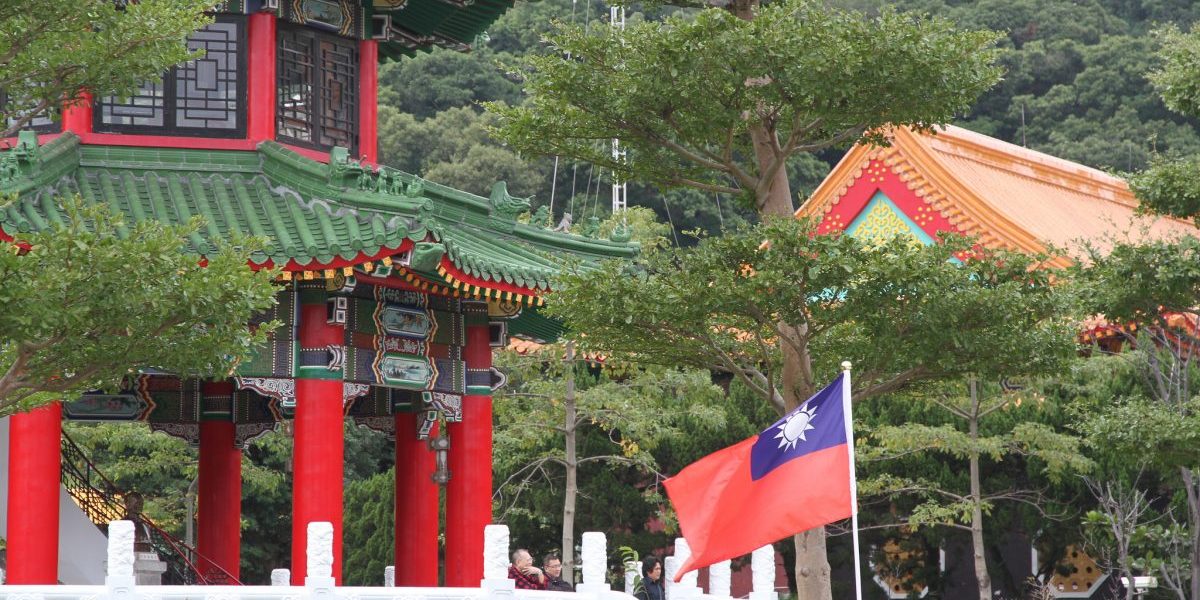This was in stark contrast to the National Day address made last year, where President Chen proposed a revising of the island’s constitution – interpreted by the PRC as veering toward de facto independence of Taiwan, which would result in an automatic declaration of war with the PRC.
Cross-strait relations have ebbed and flowed since 1949 when the Chinese Communist Party defeated the Kuomintang nationalists, who fled to Taiwan. Since then, Taiwan and the PRC have developed under separate governments and contrasting systems. Taiwan enjoyed its first democratic elections in 1996 and has a free market system, which has helped bring about impressive economic progress over the past 50 years.
However, Taiwan is still regarded as a ‘breakaway province of China’, recognised by only 27 countries located mostly in Latin America and Africa. Its political status prevents it from participating in organisations such as the United Nations (UN) or the World Health Organisation (WHO), but its economic stature has ensured it a place in the Asia-Pacific Cooperation (APEC) forum and the World Trade Organisation (WTO).
2004 has been a turbulent year for cross-strait relations. In a tightly contested presidential election earlier this year, Chen appealed to the pro-independence constituency in an effort to win additional votes. But reckless domestic campaigning provoked Beijing and distanced Washington. President Chen’s National Day speech may be seen as a reconciliatory effort to bridge the divide between Taipei and the Beijing.
But Beijing’s response to President Chen’s speech has been anything but warm. China does not trust Taiwan’s leading Democratic Progressive Party (DPP) – and President Chen in particular. The PRC has insisted that talk is cheap and progressive action from Taiwan is required if it is to be taken seriously. According to Beijing, such action would involve the adoption of a consensus reached during a meeting in Hong Kong in 1992. The apparent consensus was around the ‘One China’ principle. However, each side had a different perception of one China, and so agreed to disagree on this all-important issue. President Chen suggested, somewhat ambiguously, that the meeting in Hong Kong and not the apparent consensus reached be used as a foundation to re-launch cross-strait negotiations.
In terms of the ‘One China’ principle and Taiwanese independence, a recent survey revealed that 89.2% of Taiwanese prefer the status quo, 6.9% would like immediate independence and 1.6% favour unification with greater China. This, if anything, is indicative of the will to avoid confrontation and the recently coined ‘independence fatigue’ in Taiwan.
A peaceful resolution and coexistence is in the economic interests of both the PRC and Taiwan – not to mention the broader region and global economy. The PRC – described by international investors as the ‘insatiable dragon’ – is growing at an unprecedented rate that requires seemingly endless investment for development. Taiwan, on the other hand, is the perfect complementary economy for the PRC. Relatively advanced, Taiwan is arguably saturated in certain manufacturing sectors, and Taiwanese investors are eagerly pursuing new and emerging markets.
The PRC is the top investment destination for Taiwanese businesses, who have invested a total of $60 billion in China since the early 1990s. Cross-strait trade is approximately $40 billion per year. Taiwanese foreign direct investment is directed toward the manufacturing sector and other labour intensive industries, thus helping to alleviate growing unemployment in the China.There are approximately 50 thousand Taiwanese companies operating in China, and the estimated 1 million – mostly skilled – Taiwanese living there have in no small way have contributed to China’s economic progress.
Additional access to the PRC market will help Taiwan achieve the 5% economic growth per year it requires for sustainable socio-economic development. Clearly, the economic potential of developing links between Taipei and mainland China are enormous.
However, there are no direct air or ship links between Taiwan and the PRC. Cargo is forced to by-pass Hong Kong or one of the Japanese islands adding up to 60% to freight costs. This has seriously hindered cross-strait commercial interaction and restricted the economic exchanges between the two sides.
In May the PRC released a statement, which included seven points of exchange, including direct trade and transportation links with Taiwan. President Chen’s National Day speech may be a response to that. Chen has suggested that Taiwan’s two largest carriers, China Airlines and EVA, explore the possibility of cargo and chartered flights to the PRC as early as March 2005 – that is, if the PRC is willing to negotiate the issue. Both airlines already have a large investment stake in Xiamen International Airport in South-Eastern China.
If these bilateral links are adopted, Taiwan could well become a commercial hub for East Asia and the PRC. It is more than capable of providing the infrastructure, services and facilities to access its surrounding markets. Taiwan will no doubt provide an ideal springboardinto the PRC for businesses of all sizes from around the world, allowing them to acclimatise to the culture and business practise before launching into China.
This approach to cross-strait relations, focusing on practical gestures and regarded by President Chen as ‘not necessarily perfect, but acceptable’, will provide a stepping-stone to deeper negotiations. It follows the principle of negotiating matters that can be resolved and which are mutually beneficial to both sides, choosing functional imperatives over issues such as sovereignty, which have resulted in political brinkmanship in the past.
Establishing a common commercial and economic foundation will help to create the political space required to eventually discuss sensitive issues around the ‘one China’ principle. More than ever, under the so-called progressive leadership of President Hu Jintao of the PRC – following the hard-line approach taken by his predecessor Jiang Zemin – and the political will of President Chen Shui-bian of Taiwan, a more pragmatic solution to cross-strait tensions can be found using trade and business to overcome political obstacles and in the process build trust and confidence.








